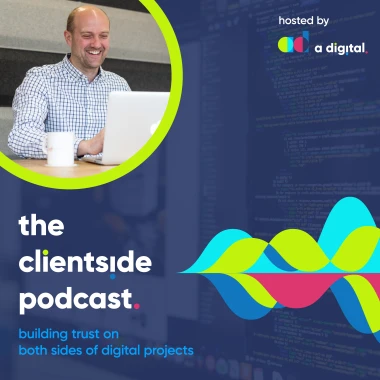
Influencer Marketing with Jenna Vernon of Collective Comms
The Clientside Podcast
Influencer marketing hit the headlines early in 2019 following the Netflix documentary Fyre Festival. But while influencer marketing has been around for a while, its often seen as the preserve of celebrities with millions of global followers. As influencing has become a new career option, we talk to experienced marketer Jenna Vernon about how you might set about running a your own campaign with influencers on social media.
Listen on your smart device or read the transcript below
It's really important for businesses to look past the numbers and to understand what kind of communities influencers have built up for themselves. What's the sentiment of the conversation and how valuable will they be in actually sharing the right message; that's what you're really looking for.
Jenna Vernon Tweet